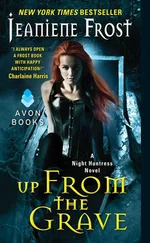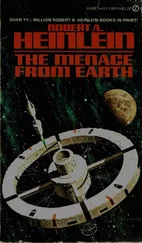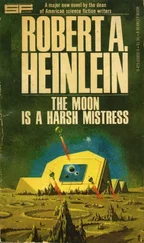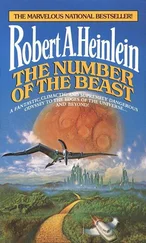Robert Heinlein - Grumbles From the Grave
Здесь есть возможность читать онлайн «Robert Heinlein - Grumbles From the Grave» весь текст электронной книги совершенно бесплатно (целиком полную версию без сокращений). В некоторых случаях можно слушать аудио, скачать через торрент в формате fb2 и присутствует краткое содержание. Жанр: Фантастика и фэнтези, на английском языке. Описание произведения, (предисловие) а так же отзывы посетителей доступны на портале библиотеки ЛибКат.
- Название:Grumbles From the Grave
- Автор:
- Жанр:
- Год:неизвестен
- ISBN:нет данных
- Рейтинг книги:5 / 5. Голосов: 1
-
Избранное:Добавить в избранное
- Отзывы:
-
Ваша оценка:
- 100
- 1
- 2
- 3
- 4
- 5
Grumbles From the Grave: краткое содержание, описание и аннотация
Предлагаем к чтению аннотацию, описание, краткое содержание или предисловие (зависит от того, что написал сам автор книги «Grumbles From the Grave»). Если вы не нашли необходимую информацию о книге — напишите в комментариях, мы постараемся отыскать её.
Grumbles From the Grave — читать онлайн бесплатно полную книгу (весь текст) целиком
Ниже представлен текст книги, разбитый по страницам. Система сохранения места последней прочитанной страницы, позволяет с удобством читать онлайн бесплатно книгу «Grumbles From the Grave», без необходимости каждый раз заново искать на чём Вы остановились. Поставьте закладку, и сможете в любой момент перейти на страницу, на которой закончили чтение.
Интервал:
Закладка:
By the time Robert found himself too busy to do more than overhead work (keeping up correspondence with his agents, keeping records, answering fan mail, and all the other chores attendant on being a literary figure), I was well enough acquainted with his business that I could take over those chores for him. We worked together as a team, discussing what to do about offers, and I would answer the letters for him.
With the juvenile series well launched, and selling many copies primarily to libraries, Robert became the darling of librarians. He was asked to give endless speeches, and when his annual books for boys came out, he did a special program for general radio distribution on each new book.
But he still yearned to do serious writing for adults, rather than for the specialized science fiction market. So, in 1960, he finished writing Stranger in a Strange Land. That book became his best known work. When the boys who originally read his juveniles grew up, they kept looking for more of the science fiction which Robert had made so popular. So he set out to write adult novels for them. For some years, he regularly wrote two books a year, one adult and one juvenile. In addition, there were always requests for other things in the way of nonfiction. Many of those requests had to be turned down for lack of time.
Between books, we did a good deal of foreign travel. We went around the world four times, spent time in Europe. One of the most interesting, but not to be repeated trips, was to the Soviet Union. In 1960, we saw the May Day parade, then took off for Kazakhstan. Soon after our arrival in Alma-Ata, we were told of the U-2 incident. Things turned frosty for us, but there was no way out, so we continued the trip, going on to Samarkand, which was the real reason we went all that way into the USSR. While we were in Vilno, just before a summit conference between Khrushchev and President Eisenhower, the Soviet Union sent up a rocket which to this day we cannot be certain was unmanned. On the way down from seeing some castle in Vilno, we encountered a group of Red Army cadets, who were extremely excited about it and had to tell us. We were heartsick about the development and returned to our hotel.
In 1970, there was a serious illness, from which it took him two years to recover his health. Then, he sat down at his typewriter and turned out Time Enough for Love.
Always a man of fragile health, illnesses became more frequent, and there was less time for writing. We both had a taste for travel, and we saw a good deal of the world; anywhere there was transportation, we went. We visited Antarctica and went through the Northwest Passage to Japan. When China opened up to travel, we went there, among other parts of the East. To Sail Beyond the Sunset was eventually published on Robert's 80th birthday. Questions began to come in-Was this to be the final book from his typewriter? (But by this time it was a computer.) He had intended to write more, but again illness intervened, and To Sail did become his final story.
I will leave it to others to evaluate the influence of Robert's work, but I have been told many times that he was the "Father of Modern Science Fiction." Those books have been published in many languages, in many lands, and some of them seem to have been landmark stories.
During his lifetime, Robert received many honors, including four Hugo awards for the best novel of the year. The books so honored were: Double Star (1956), Star-ship Troopers (1959), Stranger in a Strange Land (1962), and The Moon Is a Harsh Mistress (1966). He was also the recipient of the first Grand Master Nebula Award from the Science Fiction Writers of America. There were also many other awards: The Sequoyah Award, given by the Children of Oklahoma for the best children's novel of the year (Have Space Suit-Will Travel); many awards for the blood drives we did; Tomorrow Starts Here, given by Delta Vee, Inc.; Robert perennially won first rank among popular writers in the Locus inquiries. But the thing which pleased him most, it seemed, was being invited to be a Forrestal Lecturer at his alma mater in 1972.
In October 1988, I was asked to come to Washington, D.C., to receive, on Robert's behalf, the Distinguished Public Service Medal. My greatest regret is that he could not have known of that.
CHAPTER I
IN THE BEGINNING
April 10, 1939: Robert A. Heinlein to John W. Campbell, Jr.
I am submitting the enclosed short story "Life-Line" for either Astounding or Unknown, because I am not sure which policy it fits the better.
EDITOR'S NOTE: Robert always told the following story when asked how he began writing. He had seen an ad in one of the pulp science fiction magazines, offering $50.00 for the best story by a beginning writer. He wrote ' 'Life-Line, " then decided that it was too good for that particular magazine. So he sent it to John W. Campbell, Jr., who had been editing Astounding for approximately two years at that time. Campbell was always looking for new talent and apparently recognized it in Robert's first work. Robert claimed that he took a look at the check for ' 'Life-Line" and said, "How long has this racket been going on?" His second story was also accepted, after some
1 revisions. Thereafter it was some months before Campbell accepted another story.
Robert was one of a group of writers whose work is now called ."The Golden Age of Science Fiction. " John Campbell helped his writers along with suggestions and brought them along to make Astounding the foremost science fiction pulp magazine of the time.
April 19, 1939: John W. Campbell, Jr. to Robert A. Heinlein
...I Jike your story, "Life-Line," and plan to take it at our regular rate of 1 cent a word, or $70.00 for your manuscript.
August 25, 1939: John W. Campbell, Jr. to Robert A. Heinlein
At about this time you should receive our check for $310.00 for " -- Vine and Fig Tree -- " ("If This Goes On -- ") -- which title will have to be changed to give it more umph. The story, by practically all that's good and holy, deserves our usual unusually-good-story 25% bonus. It's a corking good yarn; may you send us many more as capably handled.
But-for the love of Heaven-don't send us any more on the theme of this one. The bonus misfires because this yarn is going to be a headache and a shaker-in-the-boots; it's going to take a lot of careful rewording and shifting of emphasis.
I genuinely got a great kick out of the consistency and logic of the piece. You can, and will, I'm sure, earn that 25 % bonus for unusually good stuff frequently. I 'm very much in the market for short stories and novelettes. This piece can't appear until after E. E. Smith's "Gray Lens-man" finishes, so I'd like more stuff in between whiles.
December 15, 1939: John W. Campbell, Jr. to Robert A. Heinlein I was wrong, evidently, in believing you had difficulty working out "Lost Legacy" [published in Super Science Stories as "Lost Legion" by Lyle Monroe], but you are definitely wrong in suggesting that "If This Goes On -- " is, or has any tendency to be, hack. It has flavor, a roundness of background that makes it lovely.
EDITOR'S NOTE: John W. Campbell, Jr. started writing pulp science fiction stories while still in college. He was a large, tall man who threw off ideas like a sparkler and was addicted to various hobbies and hospitality to authors. Some of his hobbles were photography, ham radio, and dianetics.
Robert did not admire his writing style and objected strenuously to the various changes JWC made in Robert's stories. Despite their differences in personality and style, the two men became good friends after Robert began writing for Astounding. John turned down a number of Robert's stories after the first one had been published. Those were changed slightly and later sold to other pulp magazines. Whenever John considered a story particularly good, he was allowed by the higher-ups at Street and Smith to give the writer a bonus. Rates, in those days, were very low, and the bonus added nicely to the writer's income.
Читать дальшеИнтервал:
Закладка:
Похожие книги на «Grumbles From the Grave»
Представляем Вашему вниманию похожие книги на «Grumbles From the Grave» списком для выбора. Мы отобрали схожую по названию и смыслу литературу в надежде предоставить читателям больше вариантов отыскать новые, интересные, ещё непрочитанные произведения.
Обсуждение, отзывы о книге «Grumbles From the Grave» и просто собственные мнения читателей. Оставьте ваши комментарии, напишите, что Вы думаете о произведении, его смысле или главных героях. Укажите что конкретно понравилось, а что нет, и почему Вы так считаете.










